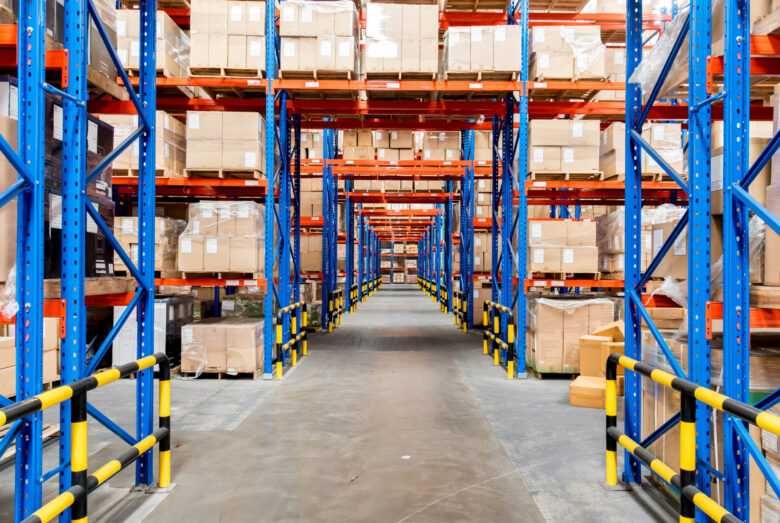In the vast world of commerce, wholesale suppliers often operate behind the scenes, yet their impact is monumental. These entities serve as the crucial link between manufacturers and the end consumer, ensuring that products are not only available but also affordable. Their role is multifaceted, and their operations span across industries, from the latest tech gadgets to basic grocery items. As we embark on this exploration, we’ll uncover the intricate operations of wholesale suppliers and emphasize why understanding their role is paramount for anyone involved in the business ecosystem.
Definition of Wholesale Suppliers

At its core, a wholesale supplier is an entity that procures products in large quantities and sells them, primarily to retailers. This bulk selling is what differentiates them from retailers, who cater to the end consumer. Imagine a scenario where a manufacturer produces a new line of shoes. Instead of selling each pair individually to consumers, they sell hundreds or even thousands of pairs to a wholesaler. This wholesaler, in turn, distributes these shoes to various retailers, who then make them available to the public. This distinction between wholesale and retail is fundamental to understanding the flow of products in the market.
Types of Wholesale Suppliers
The world of wholesale isn’t monolithic. It comprises various players, each with its unique role:
- Manufacturers: These are the creators, the entities that produce goods. Sometimes, they sell directly to retailers, but often they rely on intermediaries to distribute their products.
- Distributors: Think of distributors as the middlemen. They purchase products from manufacturers and ensure they reach various retailers. Often, they have exclusive rights to distribute certain products within designated areas.
- Importers: In our globalized world, not all products a country consumes are produced locally. Importers source these foreign products and introduce them to their home markets.
Each of these entities has its modus operandi, but their collective goal is ensuring products move seamlessly from production facilities to store shelves.
Role of Wholesale Suppliers in the Supply Chain
The supply chain is akin to a relay race. It’s a series of interconnected steps ensuring products transition from creation to consumption. A wholesale supplier such as GlobalSources is a vital link in this chain, positioned between manufacturers and retailers. Their role is multifaceted: they ensure products are available in the right quantities, stored under optimal conditions, and delivered timely. Without them, manufacturers would struggle to distribute their products, and retailers would face challenges stocking their shelves.
Benefits of Using Wholesale Suppliers

Engaging with wholesale suppliers offers retailers a plethora of advantages:
- Cost Savings: Economies of scale come into play here. Purchasing in bulk often leads to significant discounts, which can be passed on to the consumer, ensuring competitive pricing.
- Wide Product Range: Instead of liaising with multiple manufacturers, retailers can access a diverse product range through a single wholesaler, simplifying procurement processes.
- Efficiency: Navigating the intricacies of product sourcing, especially from international markets, can be daunting. Wholesalers, with their established networks, remove this burden from retailers.
Relationship Between Wholesale Suppliers and Retailers
This relationship is akin to a well-choreographed dance. Retailers rely on wholesalers to ensure their shelves are always stocked, while wholesalers depend on retailers to bring products to the consumer. It’s a partnership built on trust, mutual respect, and shared goals. Effective communication, transparent operations, and a shared vision for growth are the pillars of this relationship.
Factors to Consider When Choosing Wholesale Suppliers
Choosing a wholesale supplier is a decision that can make or break a retail business. Key considerations include:
- Product Quality: Consistency is key. Retailers must ensure that the products they receive meet the desired standards every single time.
- Pricing: While cost savings are a significant advantage of buying wholesale, retailers must ensure they’re getting the best deal without compromising on quality.
- Location: A supplier’s proximity can greatly influence logistics, impacting both costs and delivery times.
Challenges in Dealing with Wholesale Suppliers

Every business relationship faces challenges, and the retailer-wholesaler dynamic is no exception:
- Inconsistent Quality: Even the best suppliers might occasionally deliver products that aren’t up to par.
- Communication Barriers: Misunderstandings can lead to incorrect orders, missed deliveries, or financial discrepancies.
- Delays: External factors, from geopolitical tensions to natural disasters, can disrupt the supply chain.
Retailers must be proactive, address these challenges head-on, and always have contingency plans in place.
Negotiating with Wholesale Suppliers
Negotiation is an art. It’s about striking a balance where both parties feel they’re getting a fair deal. For retailers, understanding market rates is crucial. But beyond pricing, building a rapport and trust with suppliers can lead to better terms, exclusive deals, and first access to new products.
Technology’s Impact on Wholesale Supplier Relationships
In today’s digital age, technology plays a pivotal role in enhancing the wholesaler-retailer relationship:
Streamlined Communication: Platforms like Slack or Teams facilitate real-time communication, ensuring both parties are always on the same page.
Order Management Systems: These digital solutions ensure orders are tracked, processed, and fulfilled efficiently.
How to Find and Connect with Wholesale Suppliers

In the quest to find the perfect supplier, research is paramount:
Trade Shows: These events offer a unique opportunity to meet suppliers, assess product quality firsthand, and initiate business relationships.
Online Directories: Platforms like Alibaba have revolutionized product sourcing, connecting retailers with suppliers from across the globe.
Once potential suppliers are identified, initiating contact with clarity, professionalism, and a clear vision is crucial.
Future Trends in Wholesale Supply Chain
The world of wholesale is not static. It’s evolving, influenced by market trends, technological advancements, and globalization:
Globalization: As businesses expand their reach, the role of importers will become even more crucial, sourcing products that cater to diverse markets.
Technology: From AI to blockchain, technological innovations promise to make the supply chain more efficient, transparent, and resilient.
Both suppliers and retailers must stay abreast of these trends, adapting their strategies to ensure continued success.
In wrapping up, it’s evident that wholesale suppliers are the linchpins of the retail industry. Their operations, though often behind the scenes, ensure that the global commerce machine runs smoothly. As markets evolve and consumer demands shift, the world of wholesale will adapt, but its significance in the business ecosystem will remain undiminished.

